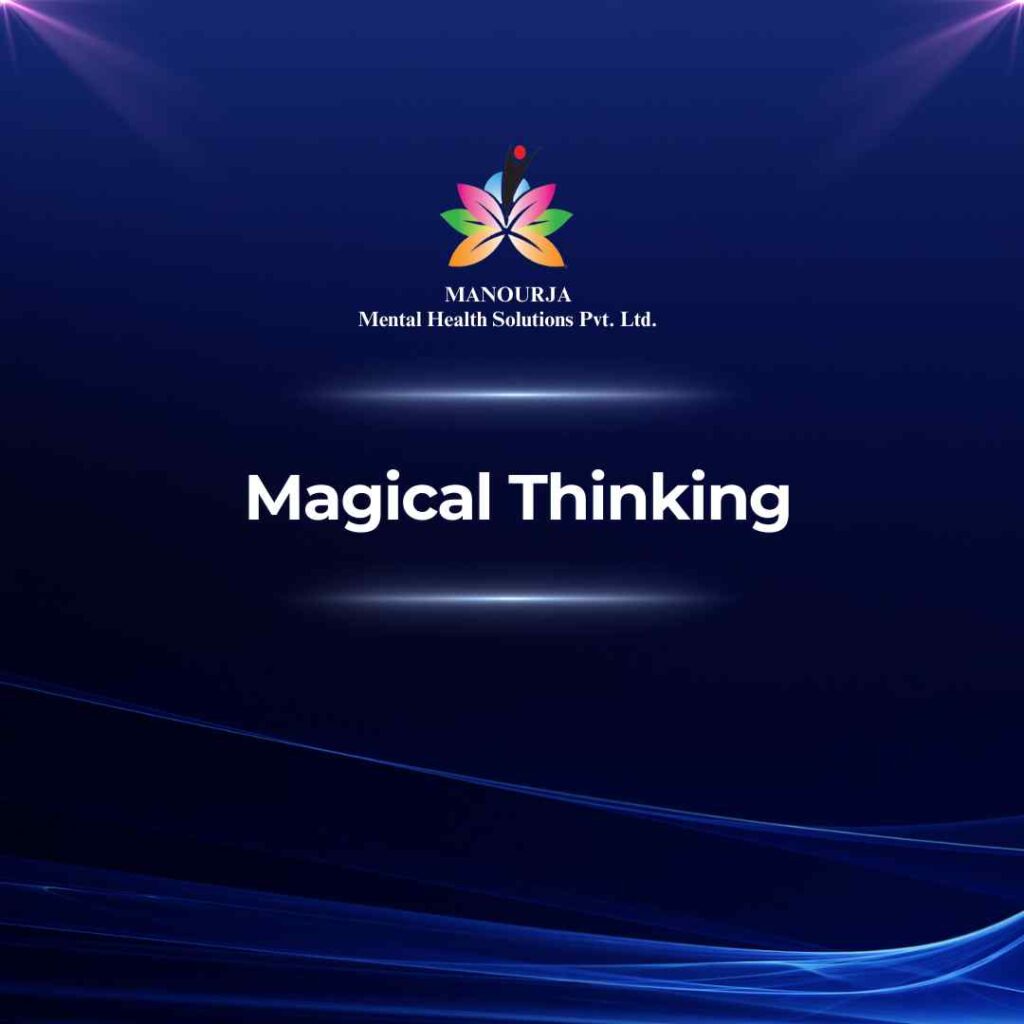Magical Thinking

“Magical thinking” refers to the belief that one’s thoughts, words, or actions can influence events or outcomes in ways that defy conventional cause-and-effect relationships. It involves attributing supernatural or unrealistic powers to oneself or objects, often without evidence or rational basis.
Magical Thinking as a Sign and Symptom of Mental Illness
Magical thinking is considered a symptom of certain mental health conditions, particularly those involving delusions or perceptual disturbances. It reflects a distortion in reasoning and perception, where individuals may perceive connections or meanings that are not based on reality.
Mental Illnesses with Magical Thinking as a Symptom
Magical thinking can be observed in various mental health disorders:
- Schizophrenia: Individuals with schizophrenia may exhibit magical thinking as part of their delusions. They may believe they have special powers, are under the influence of external forces, or that their thoughts can control events or people.
- Bipolar Disorder (Mania): During manic episodes, individuals with bipolar disorder may experience grandiose delusions and magical thinking. They may believe they possess extraordinary abilities or have a special connection to supernatural forces.
- Obsessive-Compulsive Disorder (OCD): Magical thinking can manifest in OCD as irrational beliefs that certain actions or rituals can prevent harm or bring about desired outcomes, despite lack of evidence or logical connection.
- Childhood Disorders: Magical thinking is developmentally common in children, where they may believe in fantasies, imaginary friends, or supernatural explanations for events. However, in adults, it can indicate a problem when it persists and interferes with daily functioning.
- Brief Psychotic Disorder: This is a short-term psychotic disorder characterized by delusions, hallucinations, and disorganized thinking. Magical thinking can be a feature during psychotic episodes.
- Borderline Personality Disorder (BPD): Individuals with BPD may engage in magical thinking as a coping mechanism, believing in unlikely outcomes or engaging in wishful thinking as a way to manage emotional distress.
- Post-Traumatic Stress Disorder (PTSD): Magical thinking can occur in PTSD, where individuals may attribute events to external forces or have beliefs that certain actions can change past events or prevent future harm.
Managing and Treating Magical Thinking
Treatment for magical thinking focuses on addressing the underlying mental health condition and helping individuals develop more rational thought processes:
- Medication: Antipsychotic medications, mood stabilizers, or antidepressants may be prescribed depending on the specific diagnosis and symptoms.
- Therapy: Cognitive-behavioral therapy (CBT), including exposure and response prevention for OCD, can help individuals challenge and modify irrational beliefs and thought patterns.
- Education and Support: Providing education about the nature of magical thinking and its association with specific mental health conditions can empower individuals and their families to seek appropriate treatment.
- Reality Testing: Encouraging individuals to engage in reality testing exercises to evaluate the validity of their beliefs and perceptions.
Recognizing magical thinking as a symptom of an underlying mental health disorder is essential for accurate diagnosis and effective treatment planning. Addressing magical thinking can help improve insight, reduce distress, and enhance overall functioning and quality of life.
At MANOURJA, we believe in the transformative power of counseling. Our experienced therapists offer a safe and supportive space where you can explore your thoughts, emotions, and challenges. Through personalized counselling sessions, we’ll work together to develop coping strategies, build resilience, and achieve lasting positive change. Discover the path to a healthier, happier you with MANOURJA counselling services.
MANOURJA Rehabilitation Services
At MANOURJA, we’re dedicated to helping you in rebuild your life, after difficult times. Our rehabilitation services focus on understanding what you need to move forward, whether you’re recovering from addiction, trauma, or any psychological – social challenges. We create personalized plans, that are all about helping you, regain your strength and find hope again. With a caring team by your side, you’ll have the support to make real progress and take steps toward a brighter, healthier future.
